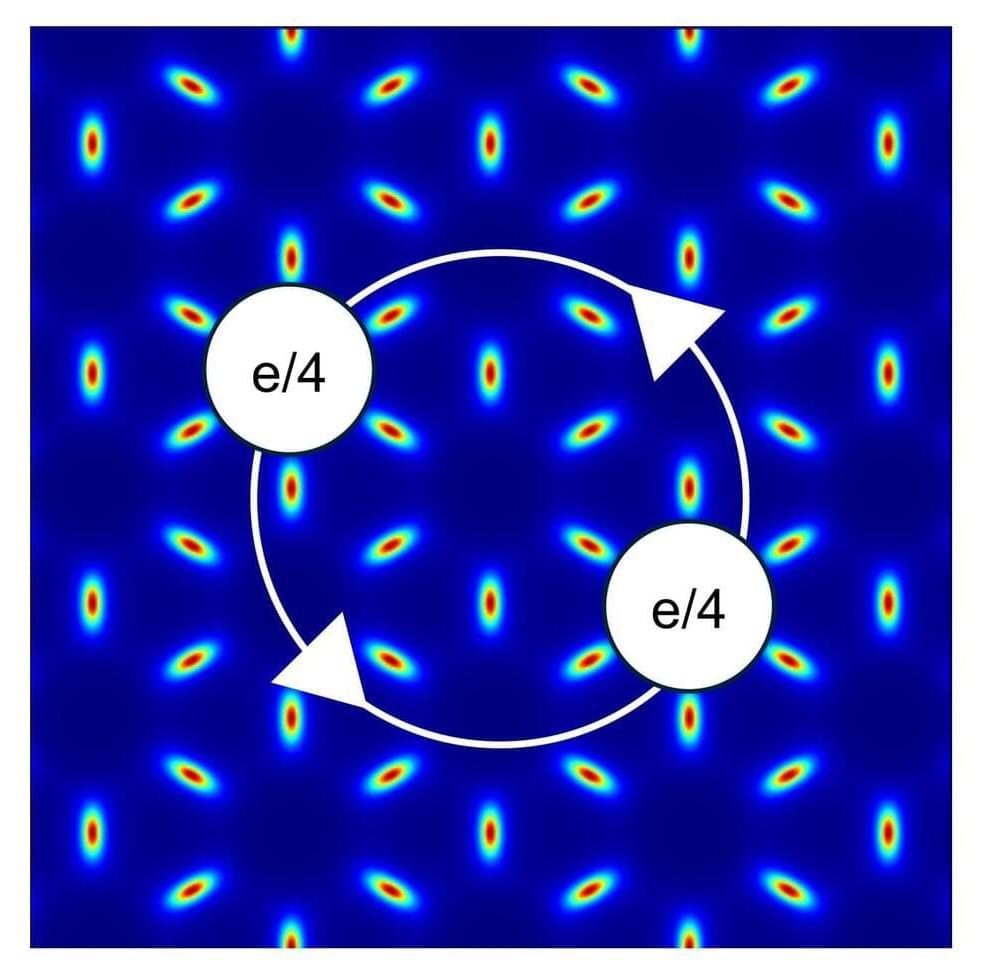MIT physicists have shown that it should be possible to create an exotic form of matter that could be manipulated to form the qubit (quantum bit) building blocks of future quantum computers that are even more powerful than the quantum computers in development today.
The work builds on a discovery last year of materials that host electrons that can split into fractions of themselves but, importantly, can do so without the application of a magnetic field. The general phenomenon of electron fractionalization was first discovered in 1982 and resulted in a Nobel Prize.
That work, however, required the application of a magnetic field. The ability to create the fractionalized electrons without a magnetic field opens new possibilities for basic research and makes the materials hosting them more useful for applications.
